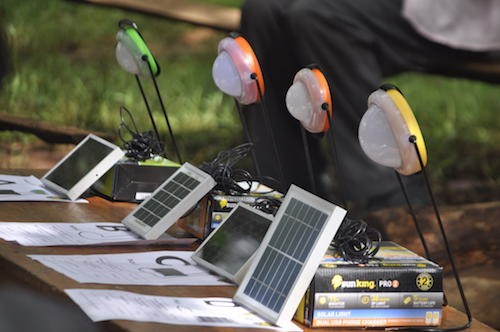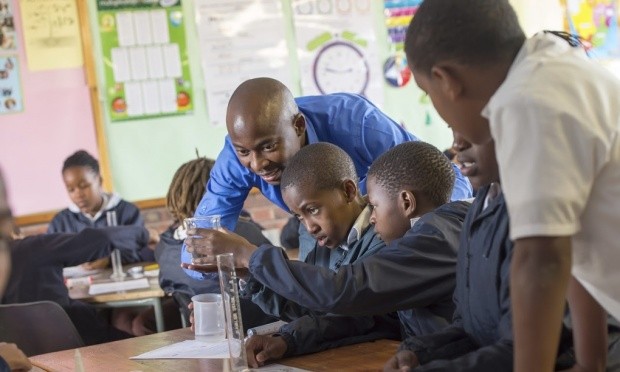Can a new sustainable fund make a difference as well as a profit in Africa
Post on: 12 Июнь, 2015 No Comment

Africa right now is hot. The continent boasts seven of the 10 fastest growing emerging economies; its formal labour market is growing; its consumer class is expanding; and private investment dollars – at last – are flowing in. Time for investors to take a punt, perhaps.
Paul Robinson is one of those looking to ride the Africa wave. A private banking specialist, he’s the driving force behind a new equity investment fund geared towards the best of the continent’s big companies.
Alquity Investment Management isn’t just another vehicle for the global get-rich-quick banking brigade, however. It differs in two important ways. First, it won’t invest in any companies that fail its social, environmental and governance (ESG) standards. And secondly, it gives away 25% of its net management fee revenue to charity.
Risky returns
The [investment] industry has incredible power and a lot more reach than many people realise, says Robinson, who describes Alquity’s philosophy as a virtuous circle in which financial institutions give as well as take.
But can equity funds turn a profit in Africa, let alone make a positive difference? From an investment perspective, Africa remains a major high-risk destination. Political instability is rife, corruption is widespread and poverty remains endemic.
Robinson doesn’t deny the risks, he embraces them. Risks are part of the territory for the fastest growing region on the planet, he says. Think of China. If you invested between 2000 and 2010, you’d probably have averaged a return of around 70%. Not bad, but nothing compared to the 928% you’d have gained if you invested throughout the previous decade.
A lot of people say ‘I’ll wait and see’… but those that make the money are those that get in early, says Robinson.
That said, his investment approach is far from reckless. Alquity’s emphasis on ESG assessment is partly designed to weed out the kind of unpredictable volatility for which emerging markets are infamous. It won’t get rid of the risk, but it’ll allow you to understand the risk you’re taking better and mitigate it by picking the companies that are addressing it [ESG management] in the right way, he argues.
In the case of Alquity, it turns to specialist analyst firm MSCI ESG Research to undertake an initial screening of around 100 large, Africa-based stocks. This flags up initial red or amber issues. Alquity then undertakes its own proprietary research, looking at country, sector and company-specific risks.
According to Robinson, this analysis approach made Alquity aware of potential worker-related problems at South African mining firm Lonmin. Alquity consequently opted not to invest. A few months later, the company became embroiled in violent clashes with its unions and its share price tumbled.
Restrictions of responsible investment
The win win mantra of responsible equity investment in Africa makes for a compelling sales pitch, but it’s not without its limitations.
First, the returns. Cumulatively, they’re not great. Those who invested in the Alquity Africa Fund at its launch in 2010, for example, will have seen their money shrink by 1.7%. Robinson puts that down to weak performance in 2011, which he describes as a terrible year for emerging markets in general. The fund fell 19%. That’s bad, although not quite as bad as its competitors, which experienced an average fall of 25%. Alquity posted double digit returns in 2010 and 2012, notes Robinson.
As a development tool, the geographic spread of equity investment is restricted too. Alquity is reflective of its peers in choosing stocks from a small minority of countries: just 11 out of 54. Within that narrow universe, the bulk of Alquity’s cash (79%) goes to three markets: Nigeria, South Africa and Ghana.
Robinson reckons around five other countries might become investible over the next five years. Still, it’ll be a long time before businesses in Togo, Niger or Eritrea get a sniff of investors’ greenbacks. Alquity’s charitable donations partly recompense this shortfall. The fund generates around $25,000 per month for charity, a substantial proportion of which goes to social projects in Malawi where Alquity has no direct exposure.
Stock choice is restricted too. Africa’s daily dealing liquid funds, such as those run by JP Morgan, DWS (owned by Deutsche Bank) and Investec, tend to focus on larger firms listed on recognised stock markets. Alquity, which currently holds 41 positions, is no different.

We’re looking for where we can deliver the best returns for our clients first… we wouldn’t choose it [a company stock] just because it’s green, says Robinson.
The philosophy is akin to best-in-class strategies adopted by traditional socially responsible investment funds. So Alquity will put money into the oil (energy firms comprise 8.6% of its portfolio) or cement sectors, for instance, but it pledges to select only those with a stellar social and environmental record.
In this respect, liquid funds differ from so-called impact investments, which look to direct capital towards companies that have an explicit social or environmental mandate. Firms operating in sectors such as education, health and water are particularly prized. So too are businesses that target the base of the pyramid (those earning less than $3,000 per year). As a mainstream investment proposition, however, such approaches are simply too niche. For now, at least.
Constructive engagement
A final question mark hangs over the ability of fund managers to engage with the companies in which they invest.
Robinson admits that Alquity’s ability to get large corporations to listen is not massive. He gives the example of Johannesburg-based mining company Anglo American Platinum, which currently boasts a market capitalisation of almost 94bn South African Rand (6.2bn): We owned 0.001% of its stock, so on your own you don’t have a massive influence.
Allying with other like-minded investors is one way to start correcting this imbalance. For that reason, Alquity is a signatory to the United Nations’ Principles for Responsible Investment. whose member companies represent over $34tn of assets under management.
Despite the challenges facing responsible investment in Africa, Robinson is confident that his approach connects with a growing sentiment within the investor community as a whole. As he concludes: What we’re expressing to them [large companies] through our ESG model is… what the majority of underlying shareholders feel, but haven’t had a route to communicate before.
This content is brought to you by Guardian Professional . Become GSB member to get more stories like this direct to your inbox














